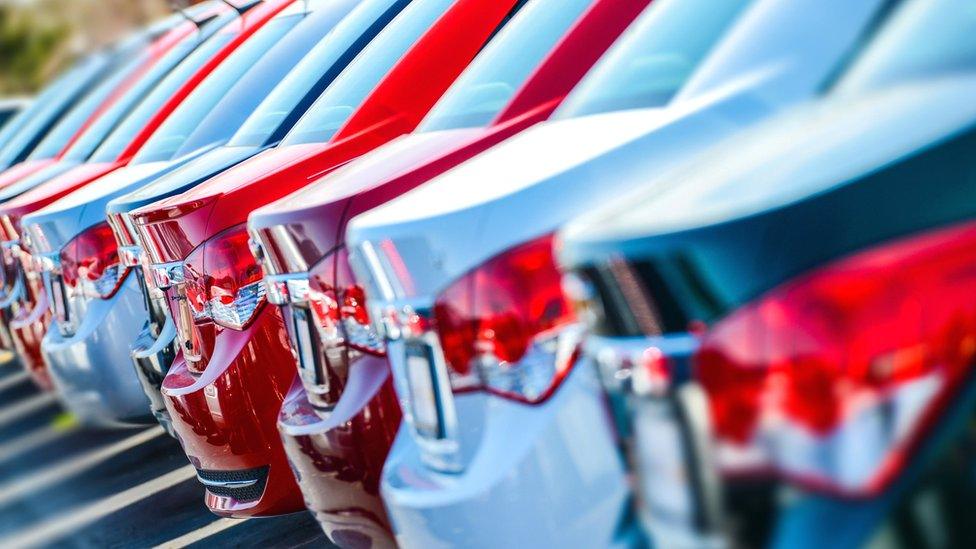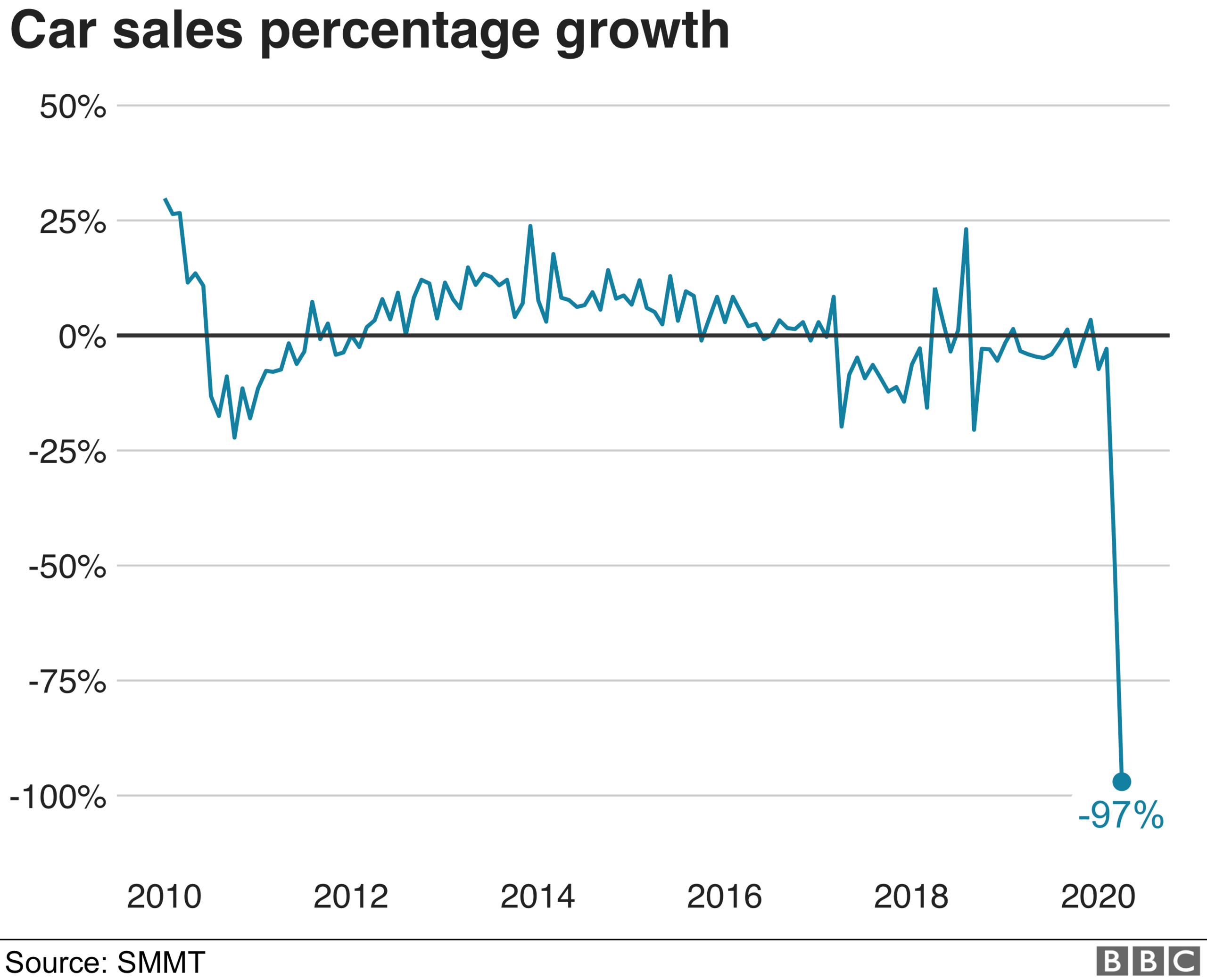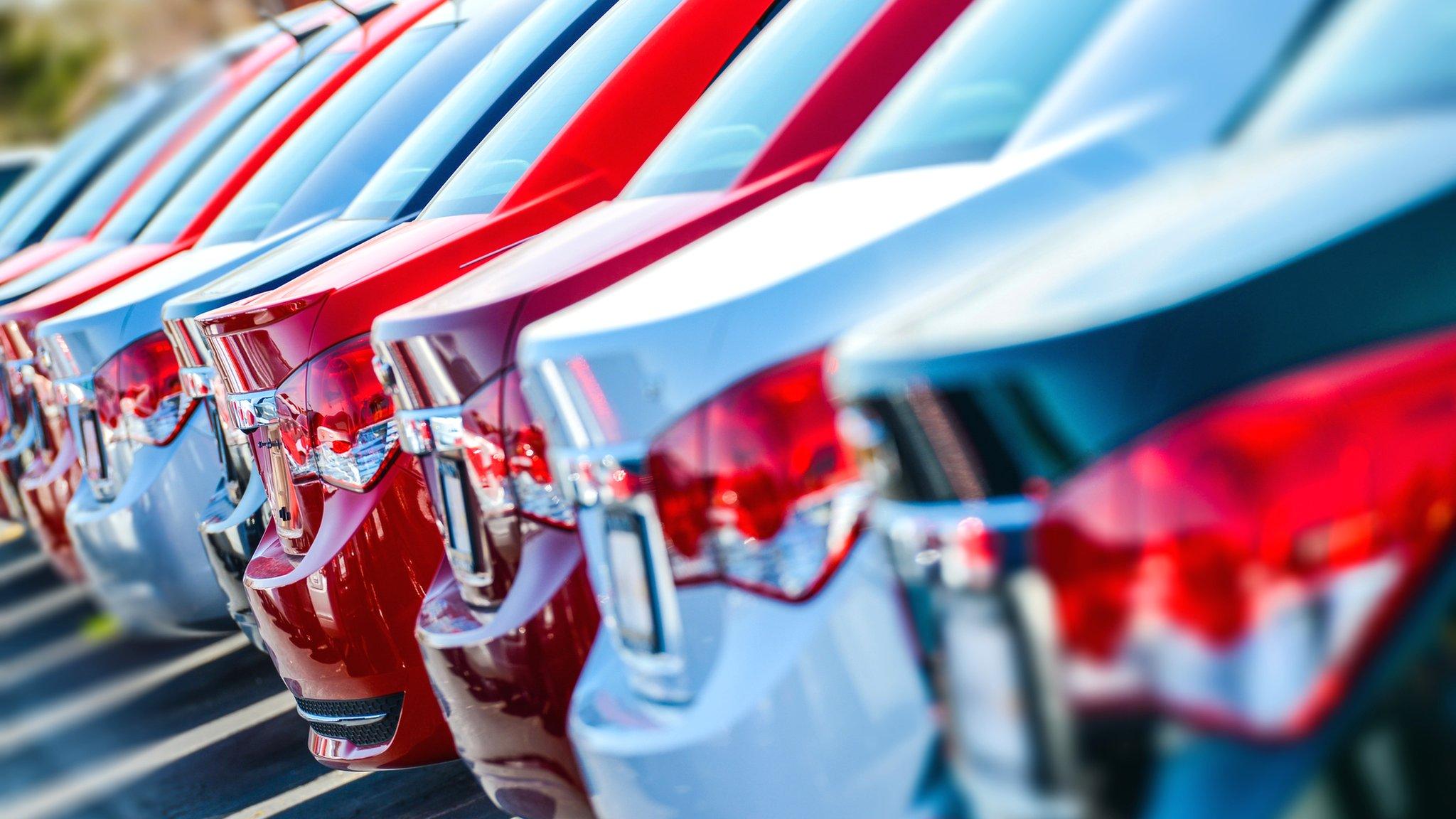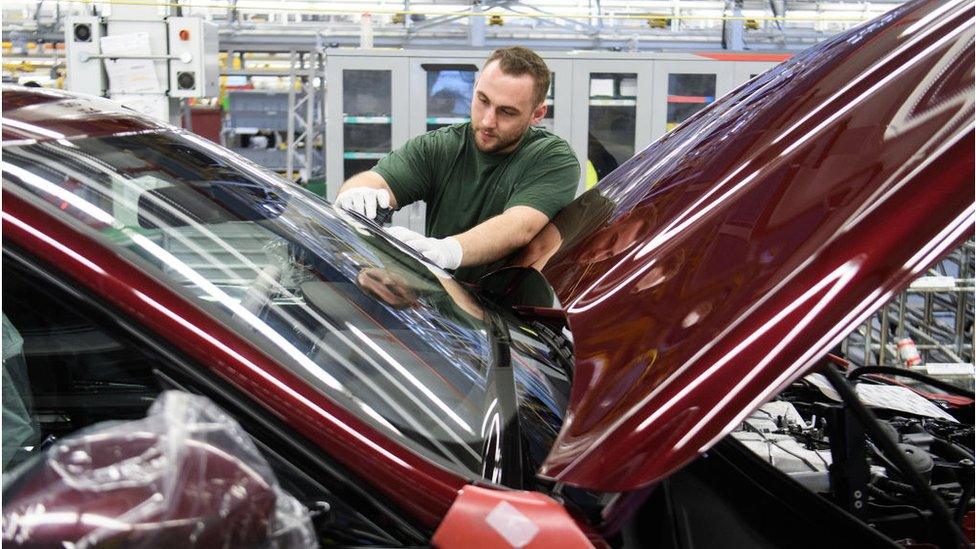Coronavirus: UK car sales plunge to lowest level since 1946
- Published
- comments

New car registrations almost ground to a halt in April after coronavirus lockdown measures were introduced, the motor industry has said.
Figures from industry body the SMMT show only 4,321 cars were registered, the lowest monthly level since 1946.
April's figure marked a 97% plunge in sales from the same month last year.
The closure of car dealerships as part of measures to try to combat the disease has hit consumer registrations.
The Society for Motor Manufacturers and Traders (SMMT) said that of the registrations made last month, 70% were by companies buying for their fleets. The cars would most likely have been on order before the lockdown, said Mike Hawes, SMMT chief executive.
"If you are told to close all your car showrooms for the entirety of April it's no surprise sales are almost non-existent," he told the BBC.
Many of the 4,000 cars sold last month were needed to support key workers and for those who had a pressing need for them, an SMMT spokesman said.



Those cars would not have been bought from dealerships, but instead, for example, from wholesalers, or directly from manufacturers.
The 4,000 figure for April compares to 161,064 new cars that were registered in same month last year.
The industry body said it now expects 1.68 million new car registrations in 2020 compared with 2.3 million in 2019.
Staff at some UK car manufacturers began returning to work this week, although the start of full production is a long way off, Mr Hawes said. The supply chain is also starting to re-open.
"Manufacturers are trying to figure out how to start operations in a safe environment," he said. "But it will be slow and production will be ramped up very slowly."
The coronavirus crisis has come at what was already a difficult time for the motor industry, which had been struggling with falling sales and a collapse in demand for diesel vehicles, while struggling to meet tough new emissions targets.


The figures are certainly dramatic, expected to be the lowest sales since February 1946.
But since virtually the entire motor industry ground to a halt when the lockdown was introduced, they are not entirely unexpected.
What matters now is what happens when the restrictions are eased and customers are allowed back into the showrooms.
You would expect there to be some pent-up demand - after all, dealerships began to close in mid-March, traditionally one of the strongest months of the year for new car sales.
However, since then harsh economic realities have come into play. Huge swathes of the workforce have been furloughed, and the signs are the country is heading into a deep recession.
Under those circumstances, with so much uncertainty and so many jobs at risk, how many people will really be willing to buy a new car?
We can expect a wave of incentive programmes - and quite possibly a wave of new scrappage schemes - as car companies start fighting tooth and nail for every single sale.

The coronavirus outbreak also halted car production.
All of the UK's major car factories suspended work in March, and it is not yet clear when they will reopen.
Ian Plummer, commercial director at online marketplace Auto Trader, said: "With retailers forced to close the doors to their physical forecourts, it'll come as no surprise to anyone to see just how dramatic an impact it's had on the new car market.
"Some brands have been able to sell remotely, but uncertainty in the government's guidelines or a lack of the required infrastructure to operate home delivery in a safe way, has limited it to all but a handful of retailers."
However, he said Auto Trader data indicated that the market had been paused, rather than stopped.
He added that there would be a chance "for the industry to accelerate the adoption of low emission vehicles" when restrictions lift.
"However, it'll be essential for manufacturers to push more electric vehicles into their UK networks along with greater financial incentives," such as scrappage schemes, he said.
- Published6 April 2020

- Published6 January 2020

- Published30 January 2020
